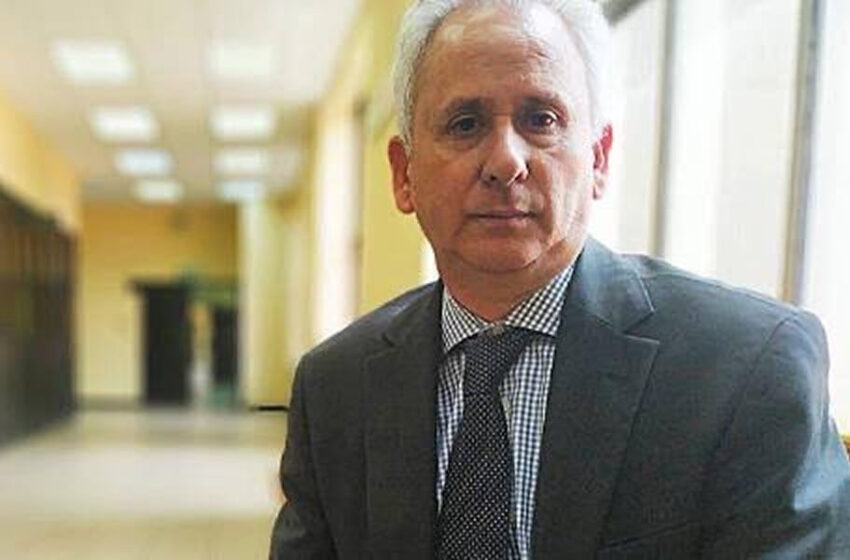Who is Firoz Cachalia, South Africa’s incoming acting police minister?

Firoz Cachalia
In a dramatic political development, President Cyril Ramaphosa has appointed Professor Firoz Cachalia as the Acting Minister of Police amid growing concerns over alleged corruption and criminal infiltration within South Africa’s law enforcement agencies.
The move follows the temporary suspension of Police Minister Senzo Mchunu, who faces explosive allegations of interference in high-profile investigations — allegations that have rocked the political landscape and raised serious questions about the integrity of the state’s crime-fighting institutions.
Why the Sudden Change?
The president’s decision comes in the wake of shocking claims made by KwaZulu-Natal’s provincial police commissioner, Lt-Gen Nhlanhla Mkhwanazi. Mkhwanazi alleged that organised criminal networks have infiltrated the South African Police Service (SAPS), intelligence agencies, and even the judiciary.
Among the most damning accusations was that Mchunu colluded with a murder-accused businessman and interfered with a task team probing political killings in KwaZulu-Natal.
In response, Ramaphosa announced a judicial commission of inquiry, to be chaired by Acting Deputy Chief Justice Mbuyiseli Madlanga, to investigate the extent of criminal influence and political interference within key state institutions.
Who Is Firoz Cachalia?
While the appointment caught many observers off guard, Firoz Cachalia brings with him decades of experience in law, governance, and public service. At 66 years old, he is far from a newcomer to the fight for justice in South Africa.
Born in Benoni in 1958, Cachalia was a prominent anti-apartheid activist during the 1970s and 1980s. He was repeatedly detained and banned by the apartheid regime due to his involvement in student movements and political organisations, eventually becoming an active member of the United Democratic Front.
He also represented the Transvaal Indian Congress during the Codesa negotiations and contributed to drafting South Africa’s early constitutional principles.
Cachalia holds a BA, LLB, and Higher Diploma in Company Law from the University of the Witwatersrand, as well as an LLM with distinction from the University of Michigan.
A Career in Governance and Oversight
Cachalia joined the Gauteng Provincial Legislature in 1994 as an ANC member and went on to serve as Speaker from 1999 to 2004. He later served as MEC for Community Safety under then-premier Mbhazima Shilowa, where he was credited with overseeing key crime-fighting reforms in Gauteng. He briefly held the Economic Development portfolio before stepping away from government in 2010.
Outside of political office, Cachalia has remained a central figure in governance and anti-corruption initiatives. He chairs the National Anti-Corruption Advisory Council — a body formed in the wake of the Zondo Commission to guide the state’s anti-corruption efforts.
He has also served as a non-executive director of the South African Reserve Bank and led Gauteng’s Planning Commission. Currently, he is a professor at Wits University and plans to retire from that position in August to assume his new role fully.
A Crucial Appointment at a Critical Time
Cachalia’s appointment was made under Section 91(3)(c) of the Constitution, which allows the president to appoint ministers from outside Parliament. An interim minister from within the Cabinet will act in the role until Cachalia formally takes over in August 2025.
His leadership arrives at a moment when public trust in the justice system is wavering. The commission of inquiry, under Justice Madlanga, is expected to investigate allegations that stretch far beyond Mchunu — including claims of systemic corruption involving police officers, prosecutors, metro officials, and even members of the judiciary.
In his address to the nation, Ramaphosa emphasized the gravity of the situation:
“This Commission is being established against the backdrop of significant progress in rebuilding and strengthening our country’s law enforcement agencies. We will ensure that SAPS and other law enforcement agencies continue to function without hindrance as the commission undertakes its work.”
Firoz Cachalia is no stranger to complex political and legal environments. His background as a principled legal scholar, seasoned public servant, and anti-corruption advocate makes him a fitting — albeit unexpected — choice for a portfolio currently under intense scrutiny.
As South Africa waits for the commission’s findings, Cachalia’s role will be pivotal in ensuring the continuity, credibility, and accountability of law enforcement operations. Whether his appointment marks a turning point in the fight against corruption remains to be seen — but it undoubtedly signals the seriousness with which Ramaphosa intends to confront the crisis.

